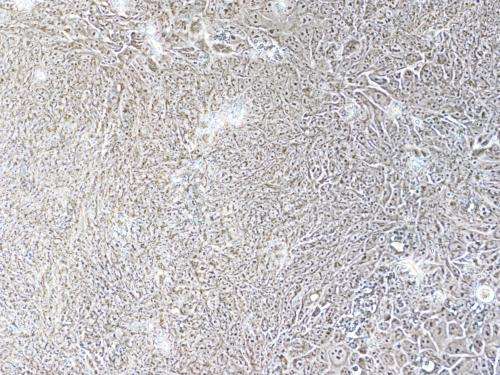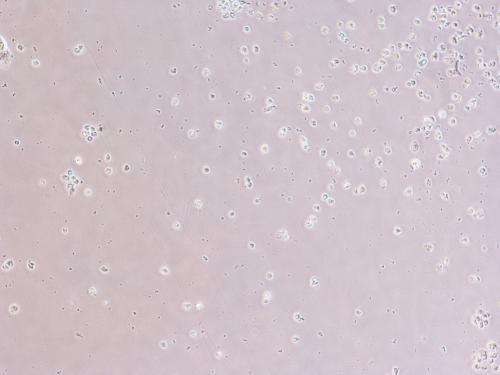Fatty acids could aid cancer prevention and treatment

Omega-3 fatty acids, contained in oily fish such as salmon and trout, selectively inhibit growth and induce cell death in early and late-stage oral and skin cancers, according to new research from scientists at Queen Mary, University of London.
In vitro tests showed omega-3 fatty acids induced cell death in malignant and pre-malignant cells at doses which did not affect normal cells, suggesting they have the potential to be used in both the treatment and prevention of certain skin and oral cancers. Omega-3 polyunsaturated fatty acids cannot be made by humans in large quantities and so we must acquire them from our diet.
The scientists were studying a particular type of cancer called squamous-cell carcinoma (SCC). Squamous cells are the main part of the outermost layers of the skin, and SCC is one of the major forms of skin cancer. However, squamous cells also occur in the lining of the digestive tract, lungs, and other areas of the body. Oral squamous cell carcinomas (OSCC) are the sixth most common cancer worldwide and are difficult and very expensive to treat.
In the experiments, the scientists grew cell cultures in the lab from several different cells lines to which they added fatty acids. The cell lines included both malignant oral and skin SCCs, along with pre-malignant cells and normal skin and oral cells. Professor Kenneth Parkinson, Head of the Oral Cancer Research Group at Queen Mary's Institute of Dentistry, said: "We found that the omega-3 fatty acid selectively inhibited the growth of the malignant and pre-malignant cells at doses which did not affect the normal cells.

"Surprisingly, we discovered this was partly due to an over-stimulation of a key growth factor (epidermal growth factor) which triggered cell death. This is a novel mechanism of action of these fatty acids."
While previous research has linked omega-3 fatty acids with the prevention of a number of cancers, there has been very little work done on oral cancers or normal cells.
Dr Zacharoula Nikolakopoulou, carried out the research while studying her PhD at Queen Mary, under the supervision of Professor Parkinson and Professor Adina Michael-Titus, who is co-ordinating a programme of work on the protection of the nervous system with omega-3 fatty acids, in the Centre for Neuroscience and Trauma at Queen Mary's Blizard Institute.
Dr Nikolakopoulou said: "As the doses needed to kill the cancer cells do not affect normal cells, especially with one particular fatty acid we used called Eicosapentaenoic acid (EPA), there is potential for using omega-3 fatty acids in the prevention and treatment of skin and oral cancers.
"It may be that those at an increased risk of such cancers - or their recurrence - could benefit from increased omega-3 fatty acids. Moreover, as the skin and oral cancers are often easily accessible, there is the potential to deliver targeted doses locally via aerosols or gels. However further research is needed to define the appropriate therapeutic doses."
The research is published online in the journal Carcinogenesis.
More information: Zacharoula Nikolakopoulou, Georgios Nteliopoulos, Adina Teodora Michael-Titus, and Eric Kenneth Parkinson, 'Omega-3 polyunsaturated fatty acids selectively inhibit growth in neoplastic oral keratinocytes by differentially activating ERK1/2'. Carcinogenesis. doi:10.1093/carcin/bgt257

















